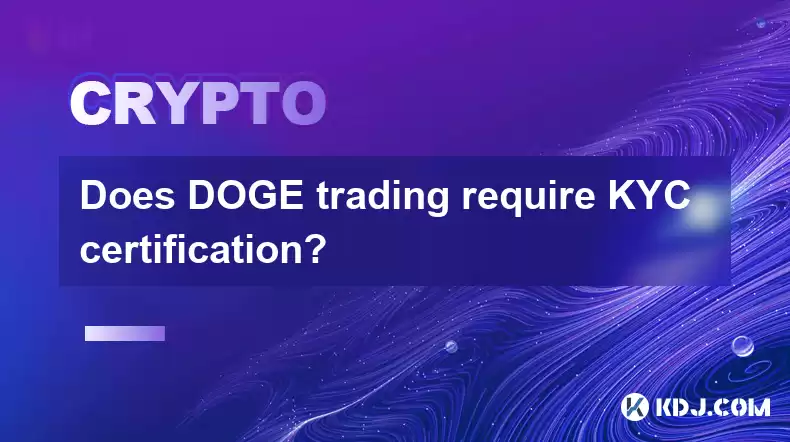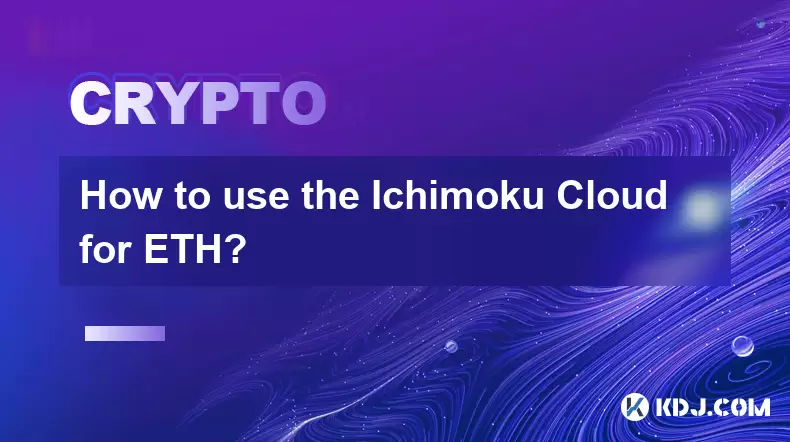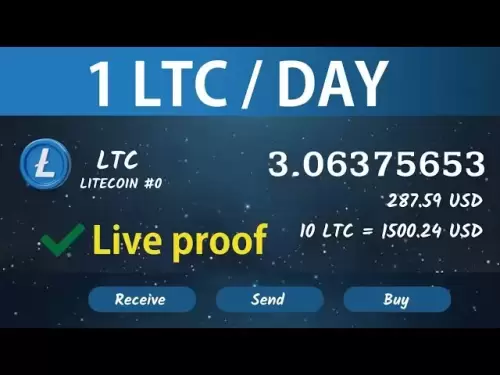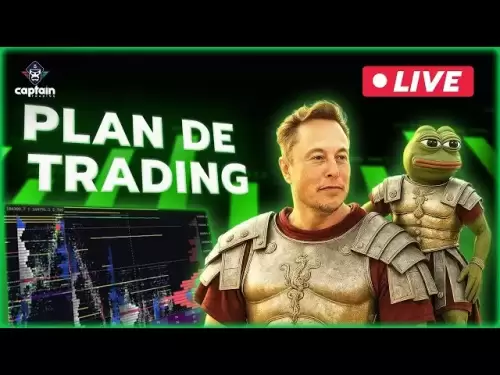-
 Bitcoin
Bitcoin $117400
-0.46% -
 Ethereum
Ethereum $3768
0.60% -
 XRP
XRP $3.551
2.09% -
 Tether USDt
Tether USDt $1.000
0.00% -
 Solana
Solana $203.2
11.30% -
 BNB
BNB $770.9
1.92% -
 USDC
USDC $0.9999
0.01% -
 Dogecoin
Dogecoin $0.2709
-0.02% -
 Cardano
Cardano $0.9024
4.49% -
 TRON
TRON $0.3139
0.60% -
 Hyperliquid
Hyperliquid $45.60
-1.41% -
 Stellar
Stellar $0.4730
-1.34% -
 Sui
Sui $4.025
2.15% -
 Chainlink
Chainlink $19.79
2.19% -
 Hedera
Hedera $0.2724
-2.39% -
 Avalanche
Avalanche $25.93
3.05% -
 Bitcoin Cash
Bitcoin Cash $524.0
-1.83% -
 Shiba Inu
Shiba Inu $0.00001558
0.50% -
 Litecoin
Litecoin $116.7
-0.30% -
 UNUS SED LEO
UNUS SED LEO $8.996
0.00% -
 Toncoin
Toncoin $3.334
1.83% -
 Polkadot
Polkadot $4.506
0.34% -
 Uniswap
Uniswap $10.99
4.83% -
 Ethena USDe
Ethena USDe $1.001
0.03% -
 Pepe
Pepe $0.00001461
3.17% -
 Monero
Monero $320.3
-1.01% -
 Bitget Token
Bitget Token $4.935
0.36% -
 Dai
Dai $0.9998
0.00% -
 Aave
Aave $322.4
-1.25% -
 Bittensor
Bittensor $455.6
9.33%
Does DOGE trading require KYC certification?
Most reputable exchanges require KYC certification for DOGE trading to comply with regulations and enhance security, though some decentralized platforms do not.
Apr 21, 2025 at 08:07 am

Does DOGE trading require KYC certification?
Trading Dogecoin (DOGE), like many other cryptocurrencies, often involves navigating the requirements set by various cryptocurrency exchanges. One common requirement that many users encounter is KYC (Know Your Customer) certification. This article delves into whether DOGE trading necessitates KYC certification, the reasons behind it, and how to navigate the process.
What is KYC Certification?
KYC (Know Your Customer) is a standard verification process used by financial institutions and cryptocurrency exchanges to verify the identity of their clients. The primary goal of KYC is to prevent illegal activities such as money laundering, fraud, and terrorist financing. By collecting personal information and verifying it against official documents, exchanges can ensure that their platform is used legitimately.
Do All Cryptocurrency Exchanges Require KYC for DOGE Trading?
Not all cryptocurrency exchanges require KYC certification for trading DOGE. However, most reputable and regulated exchanges do mandate KYC to comply with legal and regulatory standards. Exchanges that do not require KYC are often considered riskier and may not offer the same level of security and trust.
Why Do Exchanges Require KYC for DOGE Trading?
Exchanges implement KYC for several reasons:
- Regulatory Compliance: Many countries have strict regulations that require financial institutions to verify the identity of their users. This includes cryptocurrency exchanges, which must comply with these laws to operate legally.
- Security: KYC helps exchanges to monitor and prevent fraudulent activities on their platforms. By knowing who their users are, exchanges can better protect themselves and their users from scams and hacks.
- Trust and Reputation: Exchanges that adhere to KYC standards are often seen as more trustworthy and reliable by the crypto community. This can attract more users and increase the exchange's reputation.
How to Complete KYC Certification for DOGE Trading
Completing KYC certification typically involves several steps. Here's a detailed guide on how to go through the process:
- Choose a Reputable Exchange: Start by selecting a reputable cryptocurrency exchange that supports DOGE trading and requires KYC certification. Examples include Coinbase, Binance, and Kraken.
- Create an Account: Sign up for an account on the chosen exchange by providing your email address and creating a password.
- Verify Your Email: You will receive an email from the exchange to verify your email address. Click on the verification link to proceed.
- Access the KYC Section: Log into your account and navigate to the KYC or verification section. This is usually found in the account settings or profile section.
- Provide Personal Information: Fill out the required personal information, which typically includes your full name, date of birth, and residential address.
- Upload Identification Documents: You will need to upload copies of government-issued identification documents. This can be a passport, driver's license, or national ID card. Ensure that the documents are clear and legible.
- Submit Additional Documents if Required: Some exchanges may require additional documents, such as a utility bill or bank statement, to verify your address.
- Wait for Verification: After submitting your documents, you will need to wait for the exchange to review and verify your information. This process can take anywhere from a few hours to several days.
- Complete Any Additional Steps: Some exchanges may require you to take a selfie with your ID or answer security questions to further verify your identity.
- Start Trading DOGE: Once your KYC verification is complete, you can deposit funds into your account and start trading DOGE.
Can You Trade DOGE Without KYC on Decentralized Exchanges?
Decentralized exchanges (DEXs) offer an alternative to traditional centralized exchanges. Some DEXs do not require KYC certification, allowing users to trade DOGE anonymously. However, trading on DEXs comes with its own set of challenges and risks:
- Liquidity: DEXs often have lower liquidity compared to centralized exchanges, which can result in higher slippage and less favorable trading conditions.
- User Interface: The user interface of many DEXs can be less user-friendly, making it more challenging for beginners to navigate.
- Security: While DEXs offer greater privacy, they may also be more susceptible to scams and hacks due to the lack of centralized oversight.
Examples of Exchanges and Their KYC Policies for DOGE Trading
Here are a few examples of popular exchanges and their KYC policies for DOGE trading:
- Binance: Binance requires KYC certification for users to access all features, including DOGE trading. Users must complete at least Level 1 verification, which involves providing personal information and uploading an ID document.
- Coinbase: Coinbase also mandates KYC certification for DOGE trading. Users must verify their identity by providing personal information and uploading a government-issued ID.
- Uniswap: Uniswap is a decentralized exchange that does not require KYC certification. Users can trade DOGE anonymously, but they must connect a compatible wallet to access the platform.
Conclusion
In conclusion, while it is possible to trade DOGE without KYC certification on some decentralized exchanges, most reputable centralized exchanges do require KYC. Understanding the reasons behind KYC and how to complete the process can help you navigate the world of DOGE trading more effectively.
Frequently Asked Questions
Q1: Can I trade DOGE on multiple exchanges with the same KYC information?
Yes, you can use the same KYC information to verify your identity on multiple exchanges. However, you will need to go through the KYC process separately for each exchange.
Q2: Is there a way to speed up the KYC verification process?
Some exchanges offer expedited verification services for a fee. Additionally, ensuring that all your documents are clear and meet the exchange's requirements can help speed up the process.
Q3: What happens if my KYC verification is rejected?
If your KYC verification is rejected, the exchange will usually provide a reason for the rejection. Common reasons include unclear documents, mismatched information, or suspected fraudulent activity. You can resubmit your documents after addressing the issues.
Q4: Can I trade DOGE on a centralized exchange without completing KYC?
Some centralized exchanges offer limited functionality without KYC, such as depositing and withdrawing funds. However, to trade DOGE, you will typically need to complete the KYC process.
Disclaimer:info@kdj.com
The information provided is not trading advice. kdj.com does not assume any responsibility for any investments made based on the information provided in this article. Cryptocurrencies are highly volatile and it is highly recommended that you invest with caution after thorough research!
If you believe that the content used on this website infringes your copyright, please contact us immediately (info@kdj.com) and we will delete it promptly.
- XRP, Bitcoin, Ripplecoin: Navigating the Crypto Landscape in 2025
- 2025-07-22 20:30:13
- Cardano Ecosystem Watch: Can PayFi Token Remittix Trigger an ADA Overtake?
- 2025-07-22 20:50:13
- JasmyCoin Price Forecast: Chart Analysis Points to Potential Surge
- 2025-07-22 20:55:13
- Trump, Bitcoin, and Altcoins: A New York Minute on Crypto's Political Play
- 2025-07-22 21:00:13
- Shiba Inu, XRP, and Little Pepe: Navigating the Meme Coin Mania in NYC
- 2025-07-22 21:30:13
- Bitcoin's Role in IntelBroker's Takedown: A New Era of Crypto Crime Enforcement
- 2025-07-22 21:10:15
Related knowledge

What is Chainlink (LINK)?
Jul 22,2025 at 02:14am
Understanding Chainlink (LINK): The Decentralized Oracle NetworkChainlink is a decentralized oracle network designed to bridge the gap between blockch...

What is Avalanche (AVAX)?
Jul 22,2025 at 08:35am
What is Avalanche (AVAX)?Avalanche (AVAX) is a decentralized, open-source blockchain platform designed to support high-performance decentralized appli...

What is Polkadot (DOT)?
Jul 19,2025 at 06:35pm
Understanding the Basics of Polkadot (DOT)Polkadot (DOT) is a multi-chain network protocol designed to enable different blockchains to transfer messag...

What is Monero (XMR)?
Jul 21,2025 at 10:07am
What is Monero (XMR)?Monero (XMR) is a decentralized cryptocurrency designed to provide enhanced privacy and anonymity for its users. Unlike Bitcoin a...

How to add indicators to Ethereum chart on TradingView?
Jul 19,2025 at 07:15am
What Is an Ethereum Chart on TradingView?The Ethereum chart on TradingView is a visual representation of the price movement of Ethereum (ETH) over a s...

How to use the Ichimoku Cloud for ETH?
Jul 18,2025 at 09:56pm
Understanding the Ichimoku Cloud and Its ComponentsThe Ichimoku Cloud, also known as Ichimoku Kinko Hyo, is a versatile technical analysis tool that p...

What is Chainlink (LINK)?
Jul 22,2025 at 02:14am
Understanding Chainlink (LINK): The Decentralized Oracle NetworkChainlink is a decentralized oracle network designed to bridge the gap between blockch...

What is Avalanche (AVAX)?
Jul 22,2025 at 08:35am
What is Avalanche (AVAX)?Avalanche (AVAX) is a decentralized, open-source blockchain platform designed to support high-performance decentralized appli...

What is Polkadot (DOT)?
Jul 19,2025 at 06:35pm
Understanding the Basics of Polkadot (DOT)Polkadot (DOT) is a multi-chain network protocol designed to enable different blockchains to transfer messag...

What is Monero (XMR)?
Jul 21,2025 at 10:07am
What is Monero (XMR)?Monero (XMR) is a decentralized cryptocurrency designed to provide enhanced privacy and anonymity for its users. Unlike Bitcoin a...

How to add indicators to Ethereum chart on TradingView?
Jul 19,2025 at 07:15am
What Is an Ethereum Chart on TradingView?The Ethereum chart on TradingView is a visual representation of the price movement of Ethereum (ETH) over a s...

How to use the Ichimoku Cloud for ETH?
Jul 18,2025 at 09:56pm
Understanding the Ichimoku Cloud and Its ComponentsThe Ichimoku Cloud, also known as Ichimoku Kinko Hyo, is a versatile technical analysis tool that p...
See all articles

























































































